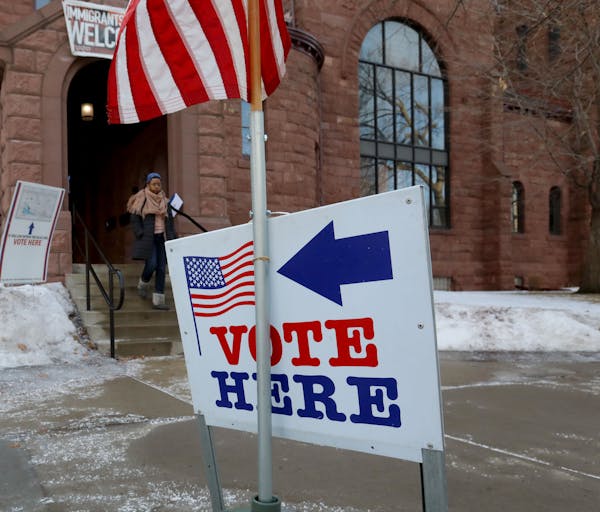WASHINGTON – Minnesota found itself on the outside looking in Friday, as national Democrats moved toward a new sequence of early presidential primaries that gives South Carolina the starting position — and awards Michigan the Midwest-leading spot that Minnesota Democrats wanted.
The new plan, meant to be in place for the 2024 presidential cycle, would replace Iowa as the first voting state in favor of South Carolina, a state whose Democrats gave President Joe Biden a vital boost toward the nomination in 2020.
That would be followed by Nevada and New Hampshire on the same day, then Georgia. DFL leaders, in a bid to vault Minnesota into greater political relevance, hoped that with Iowa's jettisoning their state could become the first in the Midwest. Instead, Michigan nabbed it.
"We're disappointed of course, don't get me wrong," DFL Party Chairman Ken Martin said before the Democratic National Committee's influential rules and bylaws panel approved the lineup. "But at some point, you know, the handwriting's on the wall."
The plan still needs a full DNC vote.
South Carolina's new prominence is a nod to the strength of the Black vote in the party now controlling the White House. In a Thursday letter to the DNC panel, Biden wrote that "for decades, Black voters in particular have been the backbone of the Democratic Party but have been pushed to the back of the early primary process."
"We rely on these voters in elections but have not recognized their importance in our nominating calendar," Biden said. "It is time to stop taking these voters for granted, and time to give them a louder and earlier voice in the process."
A slot among the first group of states can mean huge attention from presidential contenders in competitive primary cycles, along with major financial implications and urgent responsibility for voters.
Iowa, New Hampshire, Nevada and South Carolina were the first set of states to vote before Super Tuesday in 2020, but delayed results in Iowa's first-in-the-nation caucuses made for a messy start to that year's nominating season.
Iowa Democrats tried to maintain their slot for 2024 despite the concerns from last cycle, but faced competition from Minnesota and Michigan.
"Michigan is undoubtedly the best place to pick a president," Michigan Lt. Gov. Garlin Gilchrist said in a statement. "Our rich diversity of all kinds makes us the perfect microcosm of America, and a great state to make deep investments in organizing power."
DFL Gov. Tim Walz said in an interview earlier this week that he'd lobbied former D.C. colleagues to move Minnesota up on the calendar, but he knew fellow Democratic Gov. Gretchen Whitmer of Michigan was doing the same.
"No offense to New Hampshire or Iowa, but they don't look like the rest of the country. I think Minnesota is well positioned for this," Walz said. "We are not too big to distort this. It gives people an opportunity to campaign."
Walz, House Speaker Melissa Hortman and incoming Senate Majority Leader Kari Dziedzic had pledged in a recent letter to the rules and bylaws committee that, if Minnesota were picked, legislation would be passed into law to move up the state's presidential primary.
That promise was swiftly panned by Minnesota Republican Party Chairman David Hann who cited concerns about such a shift costing the state many of its GOP national convention delegates due to Republican National Committee rules.
Walz added in the interview ahead of the DNC meetings this week that Republicans would be well served by the heightened attention on Minnesota because "it gives you the national platform to disagree."
In the last presidential primary cycle, Minnesota and 13 other states voted on Super Tuesday. While the contests that day were important, moving up just a few days earlier can mean candidates train resources and attention on the state for months ahead of the actual primaries in an attempt to build critical momentum.
Minnesota is currently set to have its next presidential primary March 5, 2024, according to the secretary of state's website.
Martin noted that even if a state does get picked to be an early primary state, it's not a guarantee that will always be the case.
"If you're going to get rid of Iowa, there were really only two obvious choices in the Midwest, and it was Minnesota and Michigan," Martin said. "We're so similar in so many ways that in some ways, it was a coin flip about which one you wanted."
Staff writer Briana Bierschbach contributed to this report.
Finding an apartment may be easier for California pet owners under new legislation
Jury selection could be nearing a close in Donald Trump's hush money trial in New York

